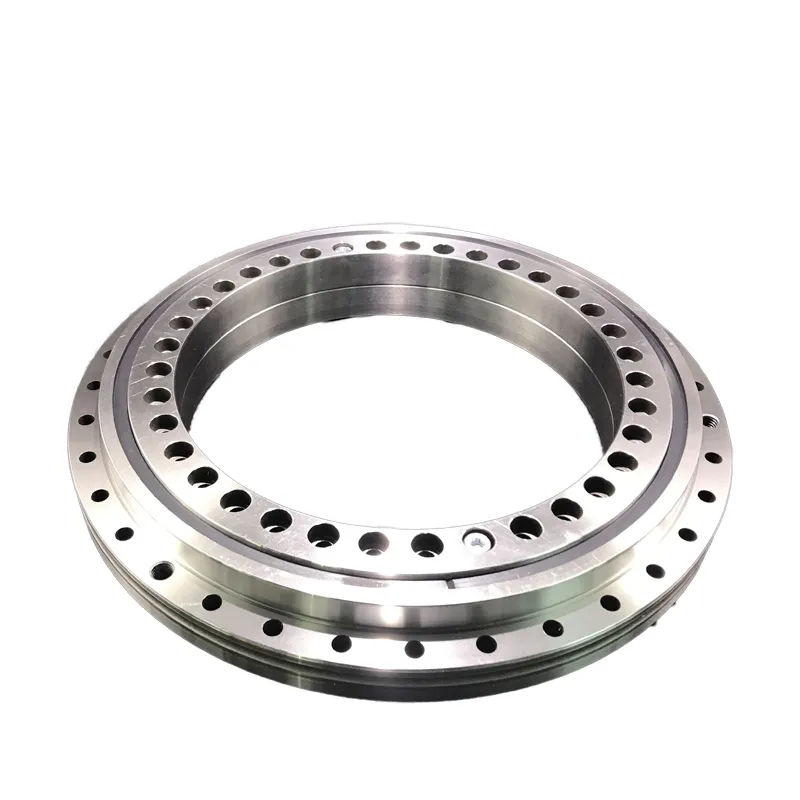A harmonic reducer, also known as a harmonic drive or strain wave gear, is a type of gear mechanism that is used to achieve high gear reduction ratios in a compact and efficient manner. It consists of three main components: the wave generator, the flexspline, and the circular spline. Bearings play a crucial role in the operation of harmonic reducers bearing by supporting the wave generator and ensuring smooth motion of the flexspline.

Crossed Roller Bearings
Features: These bearings can handle high radial, axial, and moment loads due to the arrangement of cylindrical rollers alternately crossed at right angles to each other between the inner and outer rings.
Benefits: They offer high rigidity and precision, making them suitable for the compact design of harmonic reducers.
Thin Section Bearings
Features: These bearings have a thin cross-section, allowing for space-saving designs while still providing adequate load-carrying capacity.
Benefits: They are ideal for applications where space and weight are critical, such as in robotics and aerospace.
Harmonic Drive Specific Bearings
Features: Some manufacturers produce bearings specifically designed for harmonic drives, optimizing performance for the unique loading conditions and motions involved.
Benefits: These bearings ensure maximum efficiency and lifespan for the harmonic drive.
When selecting a bearing model for a harmonic reducer, consider the following factors:
Load Capacity
Ensure the bearing can handle the expected radial, axial, and moment loads. Harmonic drives often experience complex loading conditions.
Rigidity
High rigidity is important to maintain precision and minimize deflection under load, which is critical for the accurate positioning often required in applications like robotics and CNC machinery.
...
For more detailed information about harmonic reducer models, please click here: https://www.boyingbearing.com/en/a/news/harmonic-reducer-bearings-models.html